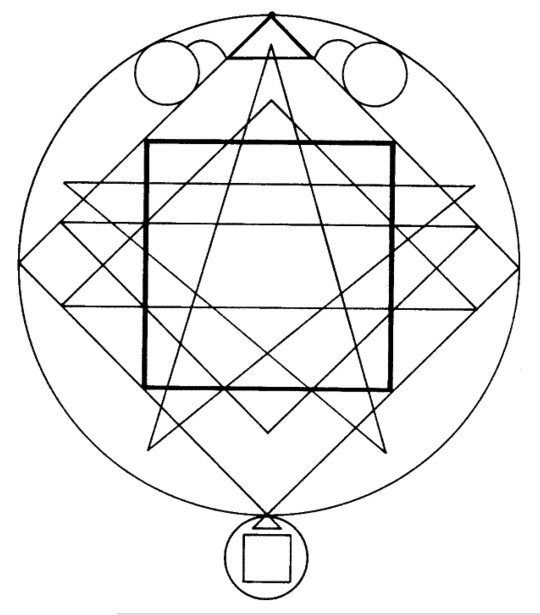First, a word of warning. Even though Benjamin Teitelbaum´s 2020 book "War for Eternity: The Return of Traditionalism and the Rise of the Populist Right" is written in a style that´s meant to be easily accesible, the book could nevertheless be a hard read if you know next to nothing about so-called Traditionalism and/or Steve Bannon. For an overview of Bannon´s less esoteric activities, see "Devil´s Bargain" by Joshua Green (anti-Bannon) and "Bannon: Always the Rebel" by Keith Koffler (pro-Bannon). Since Bannon´s story is ever-developing, a perusal of the latest news about the man might also be in order. For Traditionalism, see "Against the Modern World" by Mark Sedgwick. After reading all these volumes, you might be ready for "War for Eternity" (the book, I mean).
Teitelbaum, a music professor, has been doing research on the far right for decades. Since he obviously isn´t far right himself, and even has a Jewish-sounding last name, I´m not sure why so many far right activists are willing to talk to him. This is especially true in this case: Bannon worked for Donald Trump in the White House, Alexander Dugin works for the Kremlin, and Olavo de Carvalho is an advisor to controversial Brazilian president Jair Bolsonaro. Another person Teitelbaum interviewed, Jason Reza Jorjani, was temporarily involved in a murky milieu of former mercenaries, secretive millionaires and suspected double agents. Unless it was all just a con game! Teitelbaum was warned to continue his investigations into the identity of a mysterious well-connected "Londoner" and his motives for supporting (actually or purportedly) the international far right. But apart from this, most Alt Right personalities (Dugin being a partial exception) had no problem being interviewed by this intrepid scholar, for reasons best known to themselves...
"War for Eternity" investigates two things: the stunning come back of the far right to positions of power and influence before and during "the populist spring", and more specifically the influence of Traditionalism within the broader far right milieu. The various conspiracies or cons detailed in the book made my head spin, while the ideological underpinnings of the various actors made me deeply intrigued. Of the Traditionalists mentioned in the book, Dugin comes across as the most serious (and perhaps also the most dangerous), since he obviously works on a long-term basis for Vladimir Putin´s administration in Russia and often acts as a kind of informal envoy to various foreign nations. Dugin is even tasked with somewhat sensitive missions, for instance to Turkey after the Turks had shot down a Russian military plane. Books on geopolitics by "Putin´s Rasputin" (pun intended) have at least previously been included in the literature studied at the Russian Military Academy. Perhaps inevitably, Dugin was also the Traditionalist least willing to talk to the author. For instance, he denied ever meeting Bannon (while Bannon freely admitted it). Bannon seems more of a loose cannon (pun intended again), while Olavo is a riddle, wrapped in a mystery, inside an enigma.
Capital-T Traditionalism is a very heterogenous school of thought, associated with French esotericist and Muslim convert René Guénon (d. 1951), Italian fascistic Neo-Pagan Julius Evola (d. 1974), and Swiss-German "Sufi" and colorful kook Frithjof Schuon (d. 1998). I never understood what these men really had in common, and the Traditionalist "school" has expanded even more since the early-to-mid 20th century, when these men seems to have flourished the most. If Traditionalism can be defined at all, it´s characterized by anti-modernism and a belief in hierarchy, patriarchy, esotericism and spirituality. The ideal society is often conceived as an "Aryan" caste system, with either priests or warriors on top. The present time is the kali yuga, the dark age, when nothing meaningful can be done...or maybe it can (Traditionalists have differing approaches to political action). Despite this quasi-Hindu angle, both Guénon, Schuon and some later Traditionalists converted to Islam or took up strongly Islamophile positions. Logically, Traditionalists should support "the East" against the modern West, and they should despise the United States above everything else, the US being the quintessentially modern society, born in sin, indeed almost the Great Satan. Dugin therefore strikes me as the most consistent of the Traditionalists mentioned in this book, and he does indeed call for a Eurasian geopolitical alliance of Russia, China, Iran and Turkey against the United States. I assume Dugin is at least nominally an Orthodox Christian, but judging by Teitelbaum´s description, Putin´s Rasputin also has a peculiar infatuation with Persia. On other points, he is less obviously traditional, even using relativist and almost nihilist postmodernist arguments when calling for a "multi-polar world" in which every ethnic group can live out its unique truth or "Dasein" without homogenizing globalist influence.
Steve Bannon is a far stranger addition to the, shall we say, multi-polar Traditionalist spectrum. His pro-American anti-establishment populism doesn´t seem to have much in common with Traditionalism, except that both currents are somehow "right-wing". And can one imagine a less apt vehicle for Traditionalism than Donald J Trump, who is in many ways the very epitome of modernity and its reign of quantity? And yet, it seems that Bannon does identify himself, at least after a fashion, with Traditionalism. His idea seems to be a kind of "metaphysics of the peasantry" (Teitelbaum´s term), where the traditional White working class and the farmers in the American Heartland are seen as guardians of tradition and spirituality, whereas the US establishment represent modernity and all its evils. The plain folk - the shudras - are the real priestly caste, a stunning inversion of the traditional Traditionalist perspective. The nation-state, rather than ancient empires, is the preferred form of polity. The real America isn´t an "idea", but a real network of communities rooted in religion and the land.
Bannon´s geopolitics are strongly anti-Chinese, something the former Trump advisor explains by referencing China´s role in the globalist economy. Far from being "traditional", China (or rather its regime) is modernist. Bannon´s grand design is to realign Russia with the United States, thereby isolating and weakening China. (It´s interesting to note that Bannon is, or perhaps was until recently, financed by an exiled Chinese billionaire, Guo Wengui.) This explains his interest in the European far right, and also his secretive meeting with Dugin in Rome. However, Dugin wasn´t interested in a US-Russia realignement, instead continuing the usual course of strengthening a Sino-Russian bloc. I assume this created problems for Bannon in several European nations, where the far right is both pro-Russian and pro-Chinese (Italy comes to mind). He fared better in Britain, where he assisted the Brexit campaign.
Olavo is perhaps the strangest fish of them all. He could be seen as a kind of Brazilian version of Bannon. Like his American collegue, Olavo believes that the common people are closer to tradition and spirituality than the elites. A somewhat absurd detail is that Olavo doesn´t live in Brazil, but in rural Virginia! Yet, he has a strong connection to Bolsonaro´s administration, and has so far survived all attempts to push him out of it. It seems the Brazilian military strongly dislike him, according to Olavo because of their business ties with China. Olavo rather wants Brazil to orient itself towards the United States. Before entering the political limelight, Olavo was a leading member of the Brazilian branch of Schuon´s "Sufi" order. His present connection to Traditionalism isn´t entirely obvious, however, and he often criticizes (or perhaps pretends to criticize) Guénon. He also likes ice cream, but that´s another matter.
Somewhere here, "War for Eternity" ends, the book obviously being written before Trump´s spectacular electoral defeat in 2020. Since it was published that year, it doesn´t mention the storming of the Capitol on January 6, 2021. It seems the war for eternity has been suspended. For how long, remains to be seen. The COVID pandemic, the fall of Kabul, the crisis at the southern border, the de facto ban on abortions in Texas, the supply and energy crises, and the general failure of Joe Biden´s administration to adequetely deal with these situations will surely have an impact on the far right (including the Traditionalists). So will Biden´s decision to continue Trump´s confrontation with China and forge an alliance with a post-Brexit Britain, but also his refusal to realign with Russia. Something tells me this isn´t over quite yet.
The war for eternity never ends.













.JPG/242px-Taxidermy_mounted_tiger_17_June_2021_(10).JPG)





_mating.jpg)







.jpg/375px-Ein%C3%A1r_vinner_priset_f%C3%B6r_%C3%A5rets_artist_(cropped).jpg)




_by_shakko_09.jpg)
